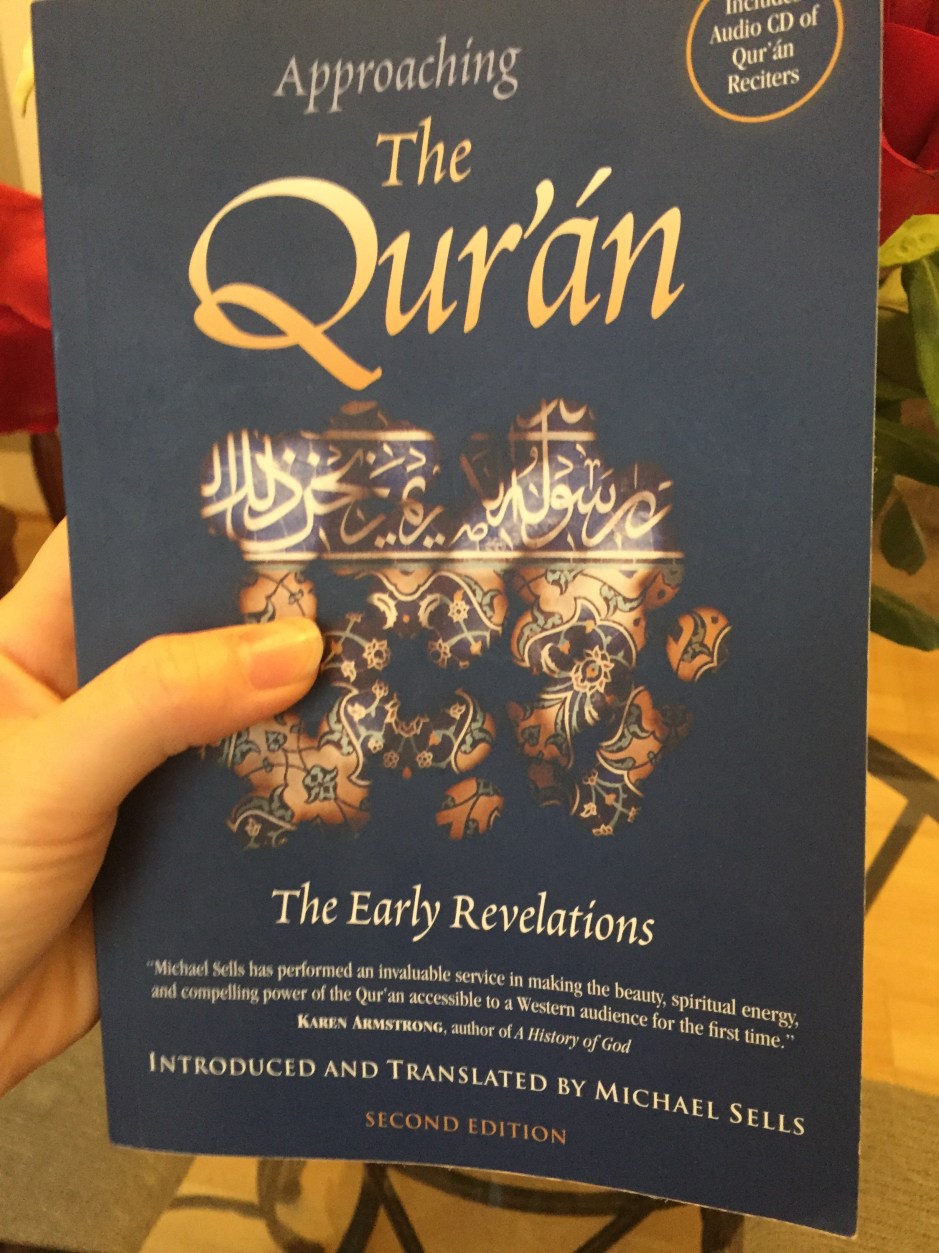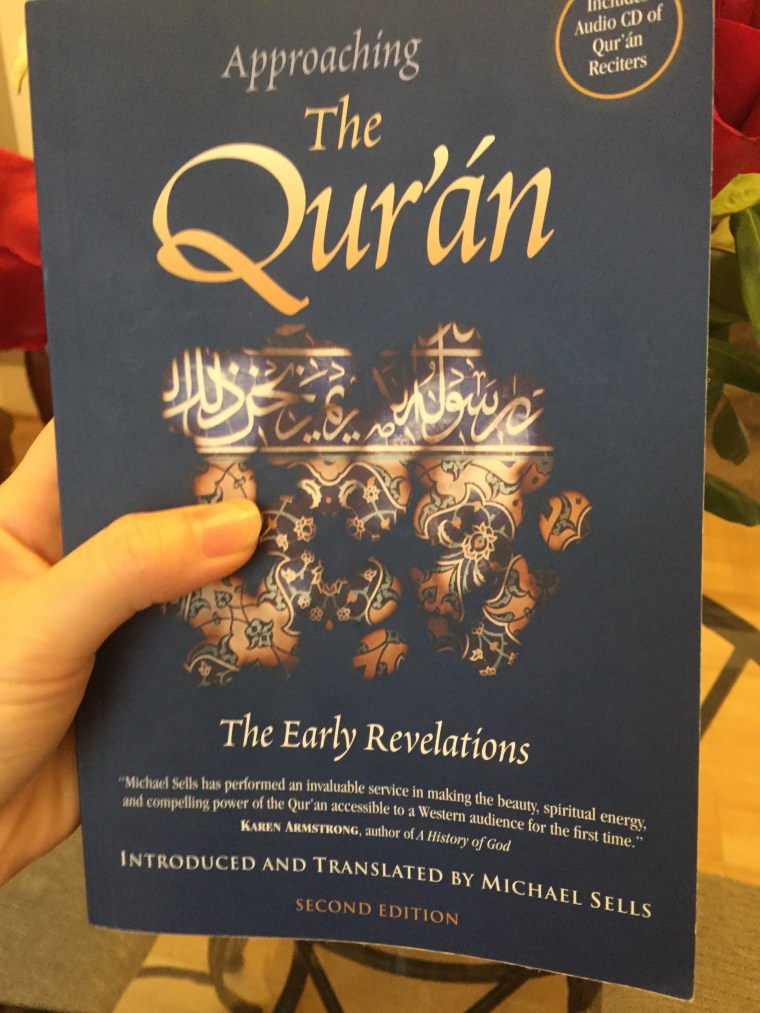It has been a while hasn’t it?
Between Ramadan, the new house, the new job, I haven’t been able to find much time to read, let alone write about what I’ve read. I’ve just settled into my a routine so I should be able to return to my usual antics. Then again, I am going to Korea in two weeks so I guess maybe not. We shall see.
Anyway, last night I finished reading “Approaching the Qur’an” by Michael Sells. You may have heard about it before as this book was at the crux of a contentious lawsuit brought forward in 2002 by three students at the University of North Carolina, whose incoming students were assigned it as a summer reading assignment. But never mind all of that. If you haven’t read it before — like me — and you are non-Arabic speaking Muslim — like me, this book will let you experience first-hand the poetry of the Qur’an.
One of my greatest goals is to be able to one day understand the Qur’an as Arabic speakers do. To listen to a recitation and be moved by the rich literature and poetry of the Qur’an is something that I so dearly want to experience. Until my understanding of Arabic and Qur’anic grammar reaches that level, I will have to settle for the English translations. While the translations may help me know what is being said, they are useless in conveying the same poetic impact that it brought upon those who heard it when it was first revealed.
This book does not cover the entire Qur’an. Sells translates Al-Fatiha, a portion of sura 53 (The Star), and then suras 81 through 114. Sells attempts translate not only the meaning of the words, but also the poetic devices of the original text. Reading Sells’ translations makes me feel as though I am reading the Qur’an for the first time. I felt moved in a way that I wasn’t before and I could understand how impactful the text could be especially in a recited format. Nevertheless, this is a translation and there is always something of meaning lost when a text a translated, so of course this will be the case with the Qur’an. However, to give you a taste of what I mean, here is a comparison of Sells’ translation and the Sahih International translation of sura 104, “The Slanderer”:
Sahih International
Woe to every scorner and mocker
Who collects wealth and [continuously] counts it.
He thinks that his wealth will make him immortal.
No! He will surely be thrown into the Crusher.
And what can make you know what is the Crusher?
It is the fire of Allah , [eternally] fueled,
Which mounts directed at the hearts.
Indeed, Hellfire will be closed down upon them
In extended columns.
Sells’
Woe to every backbiting slanderer
Who gather his wealth and counts it
thinking with his wealth he will never die
Nay, let him be thrown into the Hútama
And what can tell you of the Hútama
The fire of God, stoked for blazing
rising up over the heart
covering them in vaults of flame
stretching out its pillars
There’s a fundamental difference between those two translations. The meaning is the same, but the impact lies in not only what is said but also what is not said in Sells’ version. I so wish that Sells could come out with a complete translation of the entire Qur’an. If there are any non-Muslims out there reading this review who would like to read a translation of the Qur’an, I urge you to start with this book. It doesn’t have the whole entire Qur’an, but it gives you a hint of the power that the original text brings to its readers and listeners in Arabic. The book also contains a CD in the back that allows to you listen to the Qur’an since the Qur’an is truly intended to be recited and listened to — not read. Even the Muslims out there who depend on the English translations to understand what is being said, read this! It will bring a whole new dimension to the suras you’ve read before and possibly some new meaning to you as well.



